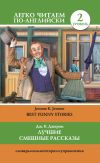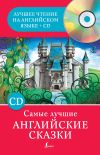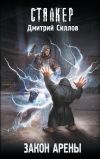Текст книги "Смешные рассказы / The Funny Stories"

Автор книги: Джером Джером
Жанр: Иностранные языки, Наука и Образование
Возрастные ограничения: +12
сообщить о неприемлемом содержимом
Текущая страница: 2 (всего у книги 8 страниц) [доступный отрывок для чтения: 2 страниц]
3. The letter
Bill and I got a piece of paper and a pencil and wrote the letter this way:
Ebenezer Dorset:
We have your boy in a place far from Summit. It is useless for you or the most skilful detectives to try to find him. The only term on which we will return the boy is this: we want fifteen hundred dollars. If you agree, send your answer in writing tonight at half-past eight. After crossing Owl Creek, on the road to Poplar Cove, there are three large trees, close to the fence of the wheat field[11]11
wheat field – пшеничное поле
[Закрыть]. There you will find a small box. The messenger will place the answer in this box and return immediately to Summit.If you attempt any treachery, you will never see your boy again.
If you pay the money, he will be returned to you safe in three hours. These terms are final, and if you do not accept them, no further communication will be attempted.
TWO DESPERATE MEN.
I addressed this letter to Dorset, and put it in my pocket. As I was about to start[12]12
As I was about to start – когда я собирался отправиться в путь
[Закрыть], the kid comes up to me and says:
“Aw, Snake-eye, you said I could play the Black Scout while you were gone.”
“Play it, of course, Mr. Bill will play with you. What kind of a game is it?”
“I'm the Black Scout,” says Red Chief, “and I have to ride to warn the settlers that the Indians are coming. I'm tired of playing Indian myself. I want to be the Black Scout.”
“All right,” I say. “It sounds nice to me. I guess Mr. Bill will help you.”
“What am I to do?” asks Bill, looking at the kid suspiciously.
“You are the horse,” says Black Scout. “Get down on your hands and knees. How can I ride without a horse?”
Bill gets down on his all fours[13]13
on his all fours – на четвереньки
[Закрыть].
“How far is it, kid?” he asks.
“Ninety miles,” says the Black Scout. “And you have to get there on time. Whoa!”
The Black Scout jumps on Bill's back and digs his heels in his side.
Bill says, “Hurry back, Sam, as soon as you can.”
When I got back to the cave Bill and the boy were not there. So I lighted my pipe and sat down to wait.
In half an hour I heard the noise in the bushes, and Bill came out. Behind him was the kid, stepping softly like a scout, with a broad grin on his face. Bill stopped, took off his hat and wiped his face with a red handkerchief. The kid stopped about eight feet behind him.
“Sam,” says Bill, “The boy is gone. I have sent him home.”
“What's the problem, Bill?” I ask him.
“I was rode,” says Bill, “the ninety miles. Then, when the settlers were saved, the boy gave me some sand to eat. And then, for an hour I had to try to explain him why there is nothin' in holes, how a road can run both ways and what makes the grass green. I took him by the neck and dragged him down the mountain.
“Now he's gone,” – continues Bill – “Gone home. I showed him the road to Summit and kicked him about eight feet nearer there at one kick. I'm sorry we lose the ransom.”
Bill was puffing, but there was a look of peace and content[14]14
peace and content – умиротворение и спокойствие
[Закрыть] on his rose-pink face.
4. The answer
“Bill,” I say, “Don't you have any heart diseases?”
“No, why[15]15
why – (зд.) а что
[Закрыть]?”
“Then you should turn around”.
Bill turns and sees the boy, sits down on the ground and begins to pluck at grass and little sticks. For an hour I was afraid for his mind. And then I told him that my plan was to make the whole job immediately and that we would get the ransom by midnight. So Bill agreed to give the kid a smile and a promise to play the Russian in a Japanese war with him as soon as he felt a little better.
Exactly on time, a boy rides up the road on a bicycle, sees the box, puts a piece of paper into it and pedals away back to Summit.
I waited for an hour and then I got down from the tree, got the note and was back at the cave in another half an hour. I opened the note and read it to Bill.
Two Desperate Men.
Gentlemen: I got your letter. I think you ask too much, and I make you my offer, which I believe you will accept. You bring Johnny home and pay me two hundred and fifty dollars, and I agree to take him back. I advise you to come at night, because the neighbours believe he is lost, and I couldn't be responsible for what they would do to anybody who brought him back.
Very respectfully,EBENEZER DORSET.
“Sam,” said Bill, “what's two hundred and fifty dollars? We've got the money. One more night of this kid will send me in Bedlam. You aren't going to let the chance go[16]16
You aren't going to let the chance go – ты же не собираешься упустить шанс
[Закрыть]?”
I wasn't.
We took him home that night. We made him go by telling him that his father bought a silver-mounted gun and a pair of moccasins for him, and we were going to hunt bears the next day.
When the kid found out that we were going to leave him at home, he started to cry and grabbed Bill's leg. His father peeled him away gradually, like a plaster.
“How long can you hold him?” asks Bill.
“I'm not as strong as I used to be,” says old Dorset, “but I think I can promise you ten minutes.”
“Enough,” says Bill. “In ten minutes I can cross the Central, Southern, Middle Western States and get to the Canadian border.”
And, as dark as it was, and as fat as Bill was, and as good a runner as I am, he was a mile and a half out of Summit before I could catch up with him.
Luck
Mark Twain
1. The student
It was at a banquet in London in honor of one of the two or three English military names of this generation. For some reasons I will not tell his real name and titles, and call him Lieutenant-General Lord Arthur Scoresby… What a fascination there is in a famous name!
I looked, and looked, and looked at him, searching, noting: the quietness, the noble gravity; the simple honesty.
The priest at my left was my friend – priest now, but he spent the first half of his life in the camp and field, and as an instructor in the military school at Woolwich. Just at the moment I was talking about, a singular light blinked in his eyes, and he leaned down and whispered to me – pointing at the hero of the banquet: 'Privately – his glory is an accident – just a result of luck.'
This was a great surprise to me. If its subject was Napoleon, or Socrates, or Solomon, my shock could not be greater.
Some days later came the explanation of this strange phrase, and this is what my friend told me.
“About forty years ago I was an instructor in the military academy at Woolwich. I was in one of the sections when young Scoresby passed his examination. Other students answered brightly, while he – dear me, he didn't know anything. He was good, and sweet, and lovable; and so it was painful to see him stand there and give stupid answers. I said to myself, that after the next exam he could be excluded; so it will be an act of charity to help him as much as I can.
I found out that he knew a little of Caesar's history; and he didn't know anything else. I trained him like a slave on questions about Caesar, which I knew would be used in test. If you'll believe me, he passed the exam brilliantly! He even got compliments, while others, who knew a thousand times more than he, were criticized. By some strangely lucky accident – an accident that happens once in a century – he was not asked any other questions except from those he prepared.
Well, during his course I helped him, with the feeling which a mother feels for a crippled child; and he always saved himself – just by miracle.
The exam that would kill him was mathematics. I decided to make his death as easy as I could; so trained him, just on the questions which the examiner would certainly use. Well, sir, try to guess the result: to my horror, he took the first prize!
Sleep! There was no more sleep for me for a week. My conscience tortured me day and night. What have I done! I only wanted to ease the poor youth's fall – I never dreamed of such results. I felt as the creator of Frankenstein. Here was a wooden-head and I give him the chance to make a brilliant career.”
2. The soldier
“The Crimean war just started. I waited for the news. It came. And it shocked me. He was a captain now! Better men grow old in the service before they get a rank like that. Who could know that they put such responsibility on his green shoulders! I thought my hair would turn white.
I said to myself that I am responsible for this, and I must go with him and protect the country from him. So I took my poor little capital that I saved up through years of work and economy and bought a place in his regiment.
And there – oh dear, it was awful. Mistakes? All he did was a mistake. But, you see, nobody understood his secret – they took his idiotic mistakes for inspirations of genius; they did! His smallest mistakes could make a normal man cry; and they made me cry. And the strangest thing was the fact that every new mistake he made increased his reputation! I said to myself: he'll get so high that when they finally understand everything, it will be like the sun fell out of the sky.
He still went up, over the dead bodies, until at last, in the hottest moment of the battle our colonel died, and my heart jumped into my mouth, because Scoresby was next in rank!
The battle was awfully hot; the allies were giving way all over the field[17]17
the allies were giving way all over the field – союзники отступали по всему фронту
[Закрыть]. Our regiment occupied a very important position; one mistake could destroy everything. At this critical moment, our fool orders the regiment to change its place and occupy a neighboring hill. 'This is the end,' I said to myself.
And we went away, and were very close to the hill. And what did we find? An entire Russian army! And what happened? Were we killed? That is what would happen in ninety-nine cases out of a hundred. But no; those Russians thought that a single regiment would not walk around there at such a time. It must be the whole English army; so they turned and ran away, and we after them; and the defeat of the allies turned into a victory! Marshal Canrobert sent for Scoresby, and hugged him, and awarded him on the field in presence of all the armies!
And what was Scoresby's mistake? Just the mistaking his right hand and his left – that was all. An order came to him to support our right; and instead he went to the left. But he won the name as a military genius, and his glory will never end.
He is good and sweet and lovable, but he doesn't know enough to come in home when it rains[18]18
he doesn't know enough to come in home when it rains – он не догадается спрятаться в доме от дождя
[Закрыть]. He was a soldier in all our wars for half a generation; he made all the mistakes he could, but never made a mistake that didn't make him a knight or a baronet or a lord or something. Look at his chest; at his medals. Well, sir, each of them is a proof of a stupidity; and, together, they are proof that the best thing in the world is to be born lucky.
The Open Window
H. H. Munro (Saki)
1
“My aunt will soon be down, Mr. Nuttel,” said a very self-possessed young lady of fifteen; “in the meantime you must try and put up with me.”
Framton Nuttel tried to say some compliments to the niece and not to upset the aunt that was to come. He doubted that these formal visits to total strangers would help his nerve cure.
“I know, you will bury yourself down there and not speak to anybody, and your nerves will be worse than before. I can give you letters of introduction to all the people I know there. Some of them, as I can remember, were quite nice”, his sister said.
Framton wondered if Mrs. Sappleton, the lady to whom he was presenting one of his letters, was one of these nice people.
“Do you know many the people round here?” asked the niece.
“No one,” said Framton. “My sister was staying here, at the priest's house, you know, four years ago, and she gave me letters of introduction to some of the people here.”
He made the last statement in a tone of regret.
“Then you know almost nothing about my aunt?” continued the self-possessed young lady.
“Only her name and address,” he admitted. He was wondering if Mrs. Sappleton was in the married or widowed state. Something in the room suggested man's habitation.
“Her great tragedy happened just three years ago,” said the child.
“Her tragedy?” asked Framton.
“You may wonder why we keep that window open on an October afternoon,” said the niece, pointing at a large French window.
“It is quite warm for the time of the year,” said Framton; “but is that window connected with the tragedy?”
“Out through that window, three years ago, her husband and her two young brothers went off for their shooting. They never came back. When they were walking to their favorite shooting place they sank in a treacherous bog. It was a very wet summer, you know, and places that were safe in other years became deadly without warning. Their bodies were never found.” Here the child's voice lost its self-possessed tone and became human. “Poor aunt always thinks that they will come back someday, they and the little brown spaniel that was lost with them, and walk in at that window just as they used to do. That is why the window is open every evening till it is quite dark. Poor aunt, she often told me how they went out, her husband with his white waterproof coat over his arm, and Ronnie, her youngest brother, singing 'Bertie, why do you bound?' as he always did to tease her. Do you know, sometimes on quiet evenings like this, I almost get a creepy feeling that they will all walk in through that window…”
She shivered. It was a relief to Framton when the aunt went down into the room with of apologies for being late.
“I hope Vera was friendly?” she said.
“She was very interesting,” said Framton.
“I hope you don't mind the open window,” said Mrs. Sappleton; “my husband and brothers will be home from shooting, and they always come in this way.”
She spoke cheerfully about the shooting and the birds. To Framton it was all purely horrible.
2
He made an effort to turn the talk on to a less ghastly topic but he saw that the woman was giving him only a part of her attention, and her eyes were looking at the open window. It was certainly an unfortunate coincidence that he should have paid his visit on this tragic anniversary.
“The doctors agree in ordering me complete rest, no excitement, and no physical exercise,” said Framton, who thought that total strangers were interested in the details of one's illnesses. “On the matter of diet they are not in agreement,” he continued.
“No?” said Mrs. Sappleton, in a voice which only replaced a yawn at the last moment. Then she suddenly brightened into alert attention – but not to what Framton was saying.
“Here they are!” she cried. “Just in time for tea, and they look as if they were dirty up to the eyes!”
Framton shivered a little and turned towards the niece with a look expressing sympathetic understanding. But the child was looking through the open window with a horror in her eyes. In a shock of nameless fear Framton looked in the same direction.
In the twilight three figures were walking across the yard towards the window, they all carried guns in their arms, and one of them had a white coat over his shoulders. A tired brown spaniel kept close at their heels. Noiselessly they neared the house, and then a young voice sang out of the dusk: “I said, Bertie, why do you bound?”
Framton grabbed wildly his stick and hat; the hall door and the front gate were stages in his retreat. A bicyclist coming along the road had to run into the hedge to avoid the crash.
“Here we are, my dear,” said the owner of the white mackintosh, coming in through the window, “dirty, but most of it's dry. Who was that who ran out as we came up?”
“A very strange man, Mr. Nuttel,” said Mrs. Sappleton; “he could only talk about his illnesses, and ran off without a word of good bye or apology when you arrived as if you were ghosts.”
“I think it was because of the spaniel,” said the niece calmly; “he told me he had a fear of dogs. He was once hunted into a cemetery somewhere on the banks of the Ganges by a pack of dogs, and had to spend the night in a newly dug grave with the dogs grinning and foaming just above him. Enough to make anyone lose their mind.”
She was very romantic.
Should Married Men Play Golf?
Jerome K. Jerome
People know that we Englishmen attach too much importance to sport, it is well-known, indeed. One can wait: some day some English novelist[19]19
some English novelist – некий английский романист
[Закрыть] will write a book, showing the evil effects of over-indulgence in sport[20]20
over-indulgence in sport – чрезмерное увлечение спортом
[Закрыть]: the ruined business, the ruined home, the slow but sure[21]21
slow but sure – медленный, но верный
[Закрыть] destroying of the brain, which leads to foolishness.
I once heard of a young couple. They went for their honeymoon[22]22
They went for their honeymoon – Они отправились на медовый месяц
[Закрыть] to Scotland. The poor girl did not know he was a golfer (he won her heart when his shoulder was broken). They decided to make a tour. The second day the man went out for a walk. At dinner-time he noticed that it seemed a pretty place they had found, and suggested to stay there another day. The next morning after breakfast he borrowed a club from the hotel porter, and remarked that he would take a walk. He returned in time for lunch and seemed angry all the afternoon. He said the air was good for him, and urged that they should stay another day.
She was young and did not know much, and thought, maybe, he had a liver-ache. She had heard much about liver from her father. The next morning he borrowed more clubs, and went out, this time before breakfast, returning late and even more angry than before. That was the end of their honeymoon. He meant well[23]23
he meant well – у него были лучшие намерения
[Закрыть], but the thing had gone too far[24]24
the thing had gone too far – дело зашло слишком далеко
[Закрыть]. The vice had entered into his blood.
Many people, I think, heard about the golfing priest, who was always swearing when he lost.
“Golf and the ministry don't seem to go together,” his friend told him. “Take my advice before it's too late, and give it up, Tammas[25]25
give it up, Tammas – брось это, Тэммас
[Закрыть].”
A few months later Tammas met his friend again.
“You were right, Jamie[26]26
Jamie – Джейми
[Закрыть],” cried the priest, “golf and the ministry are not friends, I have followed your advice: I have given it up.”
“Then what are you doing with that sack of clubs?” inquired Jamie.
“What am I doing with them?” repeated the puzzled Tammas. “I am going to play golf with them! Great Heavens[27]27
Great Heavens! – О Боже!
[Закрыть], man!” he continued, “you don't think it was the golf that I'd given up?”
The Englishman does not understand how to play. He makes a life-long labour of his sport, and to it sacrifices mind and body. The health resorts of Europe draw half their profits from the playing fields of Eton[28]28
Eton – Итон
[Закрыть] and everywhere. In Swiss and German resorts enormously fat men come to you and explain to you that once they were the champions or the best sportsmen of their university—men who now cannot go upstairs. Fat men, between paroxysms of coughing[29]29
between paroxysms of coughing – между приступами кашля
[Закрыть], tell you of the goals they scored when they were extraordinary forwards. Unhappy sportsmen – you can meet them everywhere.
They are pitiable people. They can read only sport news, books are of no use to them. They never trained much their mind, and, apparently, have lost the ability to think. They don't care for[30]30
they don't care for – они безразличны к
[Закрыть] art, and Nature only suggests to them the things they can no longer do. The mountain reminds them that once they could sleigh; the field makes them sad because they can no longer handle a golf-club; by the riverside they sit down and tell you of the salmon they caught; birds only remind them about guns; music raises visions of the local cricket-match and the local band. We are sorry for them, but their stories are not interesting. The man who has other interests in life beyond sport is deaf to them; while they do not want to talk to one another. They do not believe one another.
The foreigner is taking our sports; we hope he will be warned by our example. Football is gaining favour more and more throughout Europe. But yet the Frenchman prefers to play with his head, not with his legs. He would rather catch the ball upon his head than score a goal. He does not seem to care what happens with the ball. Anybody can have the ball; he has had his game and is happy.
They talk of introducing cricket into Belgium[31]31
Belgium – Бельгия
[Закрыть]; I shall certainly try to be present at the opening game. I am afraid that the Belgian[32]32
Belgian – бельгийский
[Закрыть] player will stop cricket balls with his heads. That the head is the proper thing with which to play ball appears to be in his blood. My head is round, he thinks, and hard, just like the ball itself; what part of the human body is better to meet and stop a ball?
Tennis is firmly established from St. Petersburg[33]33
St. Petersburg – Санкт-Петербург
[Закрыть] to Bordeaux[34]34
Bordeaux – Бордо
[Закрыть]. University professors, rising early in the morning, hire boys and practise it. But to the Frenchman, as yet, it is a game. He plays it in a happy, merry fashion, that is shocking to English eyes.
Your partner's game astonishes you. His ball runs outside the field constantly. The joyous laughter of the spectators explain everything. Your partner was trying to hit a man in the next court who was busy with his shoe-lace. With his last ball he has succeeded. He has hit the man in the small of the back[35]35
the small of the back – поясница
[Закрыть], and has bowled him over[36]36
bowled him over – сбил его с ног
[Закрыть]. Doherty[37]37
Doherty – Догерти
[Закрыть] himself has never won greater applause from the crowd. Even the man who has been hit is pleased.
But the Frenchman forgets his shoe, he forgets his game. He gathers together all the balls that he can find; his balls, your balls, anybody's balls. And then commences the return match. At this point it is better to quit. Most of the players follow this plan; they go to the club-house, and, finding themselves there, order coffee and light up cigarettes. After a while both players appear to be satisfied.
In about half-an-hour or so, when everybody is tired completely, the game—the original game—is resumed. You demand the score; your partner promptly says it is “forty-fifteen.” Both your opponents rush up to the net, and apparently there is going to be a duel. After a while they suggest a compromise. The discussion is concluded by calling it deuce[38]38
by calling it deuce – объявлением ничьей
[Закрыть]. As it is rare for a game to proceed without some such incident occurring in the middle of it, the score generally is deuce. Nobody wins and nobody loses.
To the earnest player[39]39
the earnest player – серьёзный игрок
[Закрыть], it is also confusing to miss your partner occasionally—to turn round and find that he is talking to a man. Five minutes later he resumes the game. His friend comes with him, also the dog of his friend. The dog is welcomed with enthusiasm; all balls are returned to the dog. Until the dog is tired you cannot play.
But all this will no doubt soon be changed. There are some excellent French and Belgian players. The Frenchman is young in the game. He will also learn to keep the balls lower.
I suppose it is the continental sky[40]40
it is the continental sky – причина в континентальном небе
[Закрыть]. It is so blue, so beautiful; it naturally attracts one. So most tennis players on the Continent, whether English or foreign, try to aim the ball direct at Heaven. At an English club in Switzerland there was in my days a young Englishman who was really a wonderful player. He never passed the ball. But he was weak returning it. The ball went a hundred feet or so into the air and descended in his opponent's court. The other man was standing and watching the ball, a little point in the Heavens, growing gradually bigger and bigger as it neared the earth. The ball fall at his feet, rise another twenty yards or so and again descend. When it was at the proper height he hit it back over the net, and the next moment it was mounting the sky again. I have seen that young man, with tears in his eyes, was pleading to be given an umpire. Every umpire had fled. They hid behind trees, pretended they were visitors, they wanted to avoid the task of umpiring for that young man. Such a game might last all day. Anyone could return his balls; but, as I have said, nobody could get a ball past him. He won; the other man, after an hour or so, was getting mad and trying to lose. It was his only chance of dinner.
Generally speaking, a tennis ground abroad is a pretty sight. The women pay more attention to their costumes than do our lady players. The men are usually in white. The ground is often in a wonderful place, the club-house is picturesque; there is always laughter and joy. The play may not be so good to watch, but the picture is delightful. I accompanied a man a little while ago to his club on the outskirts of Brussels[41]41
on the outskirts of Brussels – в предместье Брюсселя
[Закрыть]. The ground was bordered by a wood.
It was a glorious spring afternoon. The courts were crowded. The red earth and the green grass formed a background against which the women, in their new Parisian toilets[42]42
Parisian toilets – парижские туалеты
[Закрыть], under their bright parasols, stood out like moving flowers. The whole atmosphere was delightful.
Just nearby a group of peasants were working in the field. An old woman and a young girl, with ropes about their shoulders, were drawing a harrow[43]43
were drawing a harrow – тащили за собой борону
[Закрыть], an old man was guiding them. They paused for a moment at the wire fencing, and looked through. It was an odd contrast; the two worlds divided by the wire fencing—so slight, almost invisible. The girl swept the sweat from her face with her hand; the woman pushed back her grey locks underneath the handkerchief about her head; the old man stood himself with some difficulty. So they stood for a minute, gazing with quiet faces through that slight fencing.
Was there any thought, I wonder, passing through their brains? The young girl—she was very nice in spite of her ugly garments. The woman—she had a wonderfully fine face: clear, calm eyes under a square broad brow.
The old man bent again over the guiding ropes. They moved forward up the hill. It is Anatole France[44]44
Anatole France – Анатоль Франс, французский писатель и литературный критик (1844–1924).
[Закрыть], I think, who says: Society is based[45]45
is based – зиждется
[Закрыть] upon the patience of the poor.
Внимание! Это не конец книги.
Если начало книги вам понравилось, то полную версию можно приобрести у нашего партнёра - распространителя легального контента. Поддержите автора!Правообладателям!
Данное произведение размещено по согласованию с ООО "ЛитРес" (20% исходного текста). Если размещение книги нарушает чьи-либо права, то сообщите об этом.Читателям!
Оплатили, но не знаете что делать дальше?








































